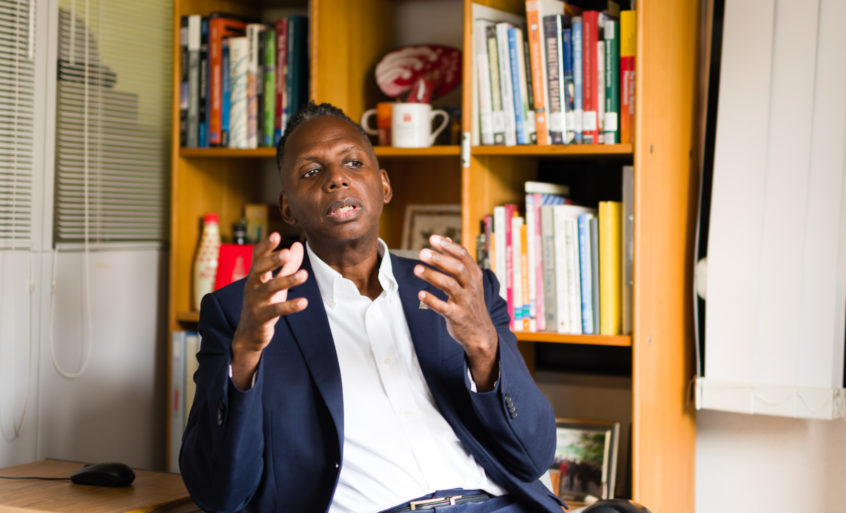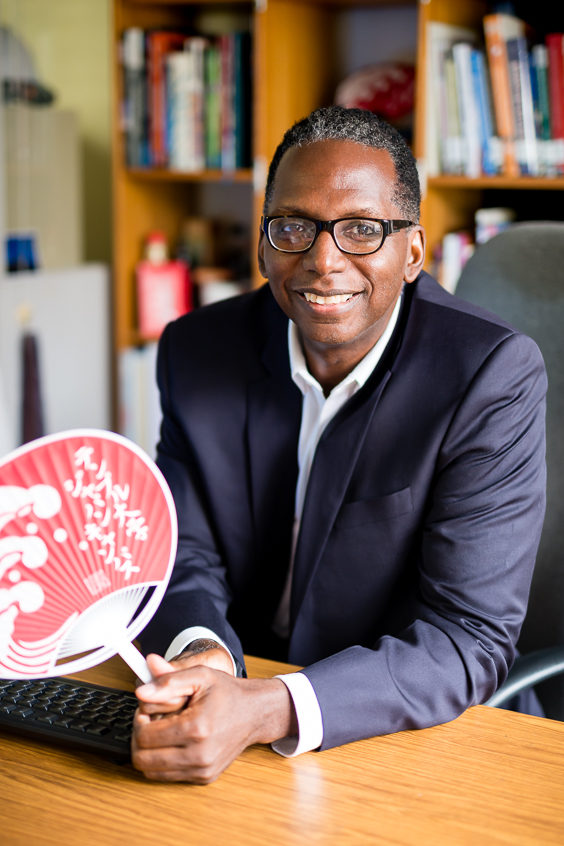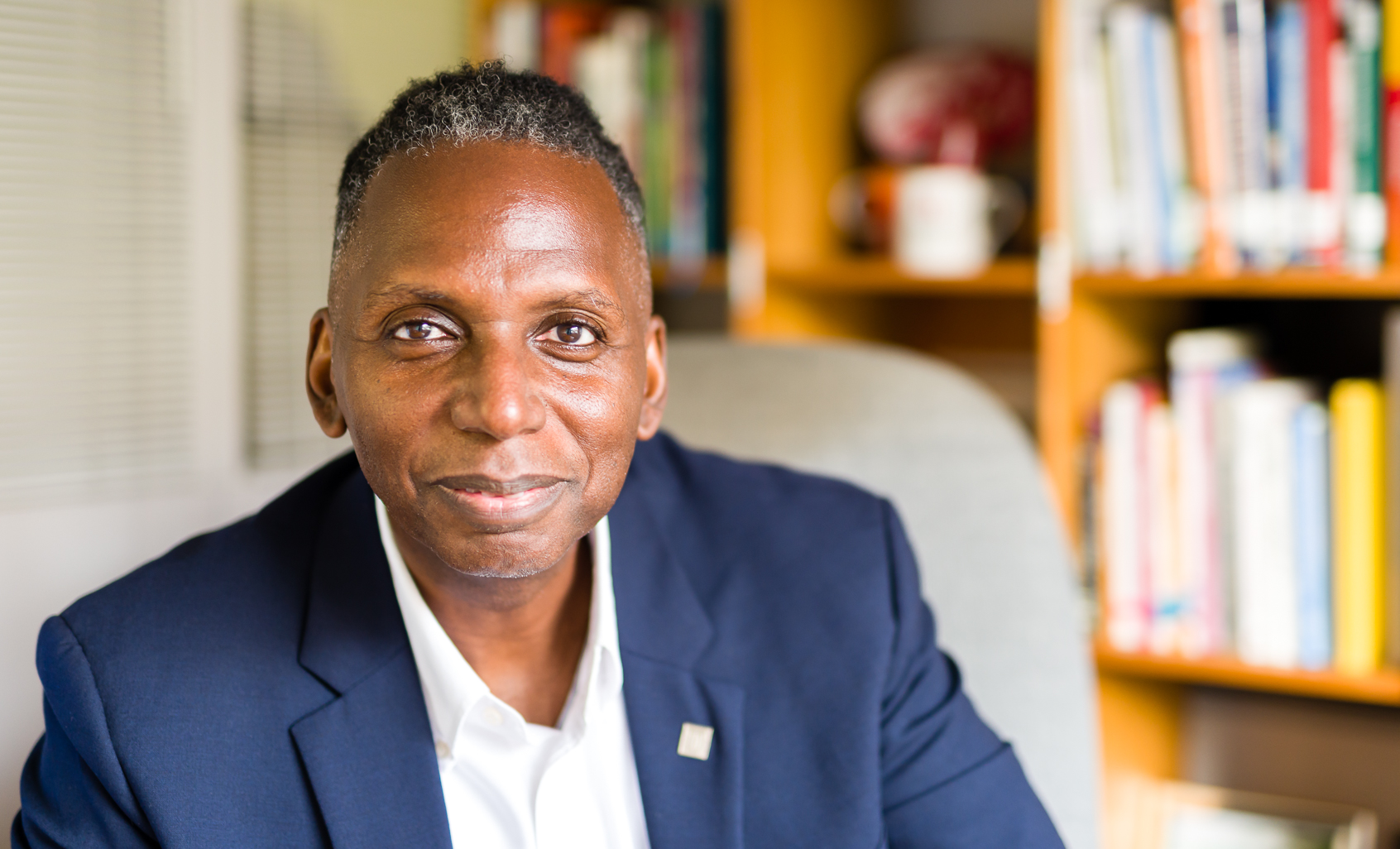Professor William J. Swinton, Director of International Business Studies Program at TUJ, is a passionate educator. He cares about students and employs innovative methods and approaches to increase their chances of success after graduating. International Business Studies program prepares graduates for work in a multilingual and multicultural environment. Swinton places the most emphasis on developing critical thinking and problem solving skills, and getting firsthand experiences. “Today, business change is exponential. Who knows what businesses will exist 10 years from now,” he confesses, “But if they [students] practice thinking skills, they will succeed in any business.”
“Just Be It!”
Swinton encourages his students to work on realization of their business ideas and life goals right here and now: “Just be it! Don’t wait for something. Go and do it.” Life does not start after graduation. It is already here. And students are expected to think about their long-term future and act now.
The International Business Studies curriculum is developed in accordance with this philosophy. Classrooms are connected to the business world through case studies, internships, and meetings with managers and executives. Students are actively involved and acquire a lot of practical experience. They do not need to wait until graduation to learn how things are done in the world outside classroom walls.
In addition, live case studies give students a taste of actual business world and its challenges. These cases shed light onto the hidden side of a wide range of businesses—from luxury hotel chains to IT and financial companies. Primary focus is on international organizations with a footprint in Asia. Business professionals-in-training must identify key issues and come up with strategies to deal with them. Proposed solutions are exchanged and evaluated in class discussions.
Many classes feature guest speakers from companies with branches and headquarters in Tokyo including giants like Amazon, Boeing, and Texas Instruments. Last semester the students had a pleasure to hear real voices of business leaders including Kei Shibata, founder and CEO at Venture Republic Global Pte Ltd. (online travel websites and services) share their experiences and ideas and current business trends. These meetings open doors to the world outside the university walls and create real connections with successful companies.

Students are also required to develop original business plans and pitch them to a panel of executives and investors—”Shark Tank” style. For example, one class assignment was to create a business involving smartphone technologies.
From early on students recognize that a professional attitude and appearance are as important as practical skills and theoretical knowledge. TUJ’s Mita Hall, where the majority of their classes take place, has a business-like atmosphere. Business suits, button-up shirts, neckties, and dress shoes are not a rare sight. Jobs prospects, business opportunities, and innovations are frequent conversation topics. These young people know that their careers have already begun.
Ask better questions
“All businesses are international in a certain sense,” says Swinton. A sweater might be produced in one country and sold in another; the wool for it can be collected in the third, and spun in the fourth. The increasing globalization of the world economy requires understanding of the big picture. What is the general structure of a business or an industry? Where can value be added and where can it be extracted? Are there better solutions to an existing problem? These are the questions students learn to ask. Through the analysis of businesses and business models future entrepreneurs generate innovative ideas and approaches.
International business needs global mindsets and the ability to work with people with dissimilar backgrounds. The TUJ International Business Studies Program is perfect for learning about different cultures and their practices. The student body is a colorful mix of many nationalities from all over the world. Any class discussion immediately becomes international. The faculty is no less diverse. Professors come from Lebanon, Germany, Canada, India, America, Japan, and other countries. All of them have experience in multiple countries, which they readily share.
Challenge Yourself
Curiosity, lifelong learning, and testing one’s own limits promote independent thinking and success, Swinton believes. He constantly challenges himself. Every year he tries to learn and do something new, something he has never done before. “It is getting out of my comfort zone. The point is that I do not know if I can do it,” he says.
This year Swinton was participating in the GORUCK “boot camp” challenge. On October 8, he joined a group of 33 people and spent a day walking, running, swimming, lifting weights, and similar activities while carrying approximately 15 kg (30 lb.) on his back. As part of the preparation for the challenge he was carrying a backpack filled with heavy bricks on all his travels for a month: “Students are constantly challenging themselves. Why shouldn’t I do the same?”

By Olga Garnova (Double major in Communication Studies and Art)

